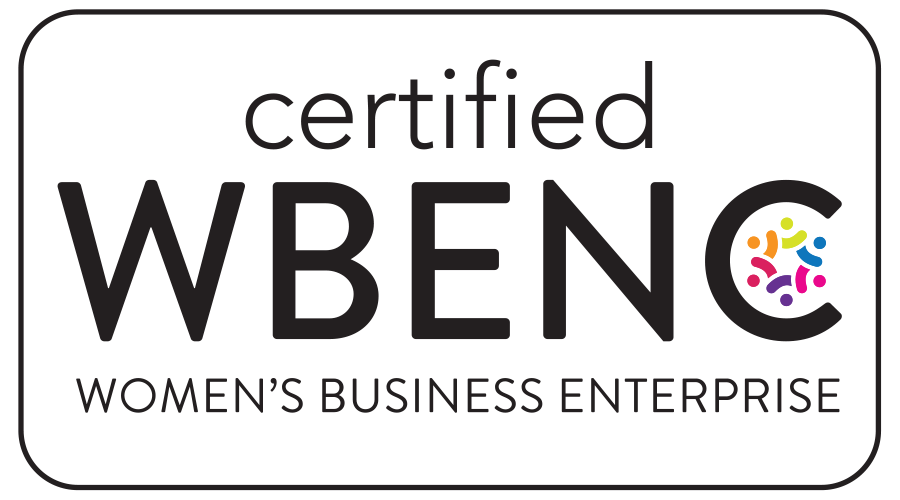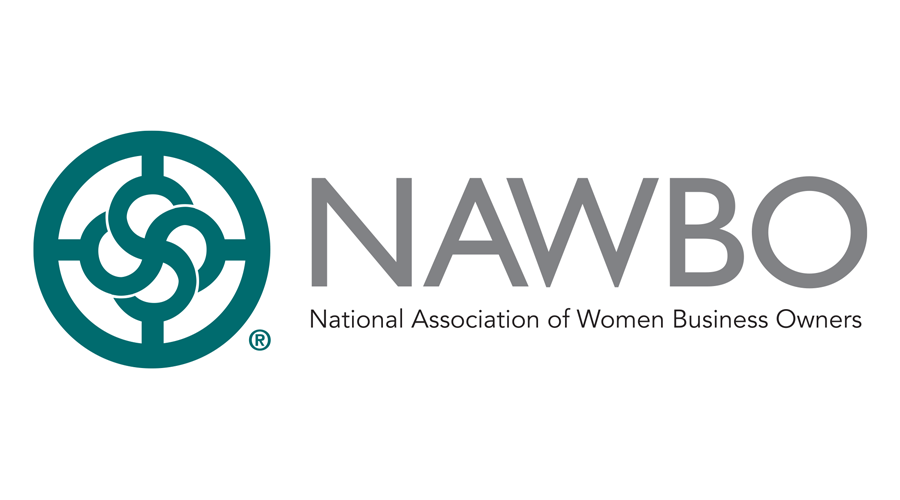Arizona
Arizona—Corporate, Personal Income Taxes: Motion Picture Production Credit Enacted
Jul. 11, 2022
Arizona will allow motion picture production companies a new refundable income tax credit for tax years beginning after December 31, 2022.
How do companies qualify for the credit?
To qualify for the credit, a motion picture production company must either:
- use a qualified production facility in Arizona to produce the motion picture production; or
- produce and film the production primarily in Arizona and perform all preproduction, postproduction, and editing at an industry standard facility in Arizona, if available.
In addition, the company must:
- maintain its production labor positions in Arizona;
- include in the credits for each production an acknowledgment that the filming took place in Arizona;
- submit a completed certification application to the Arizona Commerce Authority (ACA) with all requested information; and
- provide supporting statements and records requested by the ACA to demonstrate that the motion picture production company meets the outlined criteria.
How much is the credit?
The base credit amount is a percentage of the qualified production costs, as follows:
- 15% for a company that spends up to $10 million;
- 17.5% for a company that spends more than $10 million but less than $35 million; and
- 20% for a company that spends more than $35 million.
Additional credit amounts apply, as follows:
- an additional 2.5% of a company’s production labor costs for positions held by Arizona residents;
- an additional 2.5% of the total amount of qualified production costs if the company uses a qualified production facility in Arizona, or if the company films primarily on location in Arizona and performs all preproduction, postproduction and editing at a qualified production facility in Arizona; and
- an additional 2.5% of the total amount of qualified production costs if the production is produced and filmed in association with a long-term tenant of a qualified production facility.
Companies may not claim a deduction and a credit for the same expenses. If a company deducted any costs on its federal return for which the credit is claimed, it must add those costs back to Arizona gross income for state tax purposes.
How will companies be approved for the credit?
The ACA will provide preapproval and post approval to companies for the credits. The ACA prioritize preapprovals based on application filing dates. The ACA may not preapprove credits exceeding the following amounts in a calendar year, of which up to $25 million in each calendar year may be used for productions that qualify for the program by filming primarily on location in Arizona:
- $75 million in 2023;
- $100 million in 2024; and
- $125 million in 2025 and in each year thereafter.
What qualifies as a motion picture production?
A “motion picture production” is a single medium or multimedia program, including a feature film, episodic series, or commercial advertisement that:
- is created by production activities in Arizona;
- can be viewed or reproduced; and
- is intended for commercial distribution or licensing in the medium used.
What are qualified production costs?
“Production costs” are costs for the following that are incurred in the state:
- compensation paid for talent, writers, directors, and management;
- compensation paid for production labor;
- construction and operation costs paid pursuant to construction contracts with licensed contractors;
- wardrobe, props, accessories, and related services;
- photography, sound synchronization, lighting, and related services;
- editing and related services;
- rental of qualified production facilities;
- rental of equipment;
- catered food, drink, and condiments purchased from a qualified production facility; and
- other in-state costs for the production, pursuant to rules adopted by the ACA.
What is a qualified production facility?
A “qualified production facility” is a structure in Arizona that is built for film industry purposes, is at least 10,000 square feet, and meets industry standards for motion picture productions.
When will the credit program sunset?
The credit provisions are set for repeal from and after December 31, 2043.
H.B. 2156, Laws 2022, effective September 24, 2022, and applicable as noted
Alaska
Alaska—Miscellaneous Tax: Fisheries Product Development Tax Credit Enacted
Jul. 13, 2022
Alaska has enacted a fisheries product development tax credit until December 31, 2026. This legislation extends the sunset date for a tax credit applied to seafood processors bringing value-added salmon and herring products to market, and to broadens the tax credit to processors of other seafood products in Alaska.
S.B. 33, Laws 2022, effective July 7, 2022
Pennsylvania
Pennsylvania—Multiple Taxes: Airport Land Development Employer Credit Enacted
Jul. 12, 2022
Pennsylvania is allowing an airport land development zone employer to claim a tax credit against the:
- personal income tax;
- corporate net income tax;
- bank and company trust shares tax;
- title insurance companies shares tax; and
- mutual thrifts institutions tax.
The credit will be applicable to fiscal years beginning after June 30, 2022.
Who qualifies as an airport land development zone employer?
An airport land development zone employer must employ at least one employee in an airport land development zone. The term includes pass-through entities but does not include an employer engaged in construction improvements in an airport land development zone.
What is the amount of the credit?
The amount of the credit an employer could earn is any tax year is equal to $2,100 for each full-time equivalent employee in excess of the number of full-time equivalent employees employed by the airport land development zone employers before January 1, 2021.
How can an employer utilize the credit?
If an employer is entitled to a credit that exceeds its tax liability for the year, the employers may apply to sell or assign, in whole or part, the tax credit. The credit can be carried forward for up to 10 years.
An employer can earn a tax credit beginning in 2022 and for up to 10 tax years beginning July 1, 2022 and ending June 30, 2041.
Act 53 (H.B. 1342), Laws 2022, effective as July 8, 2022
Pennsylvania—Corporate, Personal Income Taxes: Tax Credits Updated
Jul. 12, 2022
Pennsylvania as updated several income tax credits, including the:
- Research and Development tax credit, increasing the annual cap;
- Entertainment Economic Enhancement Program, increasing the annual cap;
- Waterfront Development tax credit, increasing the annual cap;
- City Revitalization and Improvement Zones, adding violation reporting requirements;
- Neighborhood Improvement Zones, allowing the economic development authority access to certain information; and
- Keystone Opportunity Zones, adding clarifying language.
The changes to the credits apply to fiscal years beginning after June 30, 2022.
Act 53 (H.B. 1342, Laws 2022, effective July 8, 2022
Washington
Washington—Sales and Use Tax: Deferral Program Enacted for Investments in Clean Technology and Alternative Fuel Production
Jul. 12, 2022
Washington has enacted a sales and use tax deferral program for eligible investment projects in clean technology manufacturing, clean alternative fuels production, and renewable energy storage.
Eligible Projects
A project must have at least $2 million in qualified buildings or machinery for the following new, renovated, or expanded:
- manufacturing operations for property incorporated in the generation of (i) specified zero emission vehicles (ii) charging and fueling infrastructure for specified zero-emission vehicles (iii) renewable and green electrolytic hydrogen (iv) clean fuel with associated greenhouse gas emissions not exceeding 80 percent of the 2017 levels established in the Clean Fuels Program (v) electricity from renewable resources or (vi) storage facilities.
- facilities to produce clean fuels, renewable hydrogen, green electrolytic hydrogen or green hydrogen carriers; or
- facilities to store electricity generated from renewable sources.
Application
Application must be made before initiation of the construction of the investment project or acquisition of equipment. No certificate may be issued if the investment project has already received deferral under the high-unemployment rural county program, for job creation and economic development, or under this program. A recipient of deferral must begin construction within two years of receiving the deferral certificate. The deferral program expires January 1, 2033.
Repayment of Deferred Taxes
Repayment of deferred taxes must begin two years after project completion. The first payment is due on December 31st of the second calendar year after the certified date and continue annually for nine subsequent years. The deferral recipient may receive a reduction of state sales tax as follows:
- a fifty percent reduction if the department of labor and industries (L&I) certifies that the project includes contracts with women, minority, or veteran owned businesses, and entities that have a history of complying with federal and stage wage and hour laws, apprenticeship utilization, and preferred entry workers living in the project construction area;
- a seventy-five percent reduction if, in addition to the standards above, the project compensates workers at prevailing wages determined by local collective bargaining; or
- a hundred percent reduction if L&I certifies that the project is developed under a community workforce agreement or project labor agreement.
One hundred percent of local taxes must be repaid.
Reporting
The deferral recipient must file an annual tax performance report beginning the first calendar year after the project is complete and continue filing them through the end of the calendar year in which the final repayment occurs.
The legislation can be viewed on the legislature’s website.
Ch.185 (H.B. 1988), Laws 2022, effective July 1, 2022
Missouri
Missouri—Corporate, Personal Income Taxes: Tax Incentive Provisions Revised
Jul. 15, 2022
Missouri enacted legislation revising income tax incentive provisions relating to:
- a research expenses credit;
- the business headquarters credit;
- an S corporation shareholder credit for tax paid;
- the self-employed health insurance credit;
- the Missouri Works Program incentives; and
- the Tax Credit Accountability Act.
Research Expenses Credit
For tax years beginning on or after January 1, 2023, the Director of the Department of Economic Development may authorize an income tax credit for a taxpayer in an amount equal to the greater of:
- 15% of the difference between the taxpayer’s qualified research expenses incurred in the tax year and the average of the taxpayer’s qualified research expenses incurred in the three immediately preceding tax years; or
- 20% of the difference between the taxpayer’s qualified research expenses incurred in the tax year and the average of the taxpayer’s qualified research expenses incurred in the three immediately preceding tax years, if the additional research expenses relate to research conducted in conjunction with a public or private college or university in Missouri.
However, the credit allowed may not exceed 200% of the taxpayer’s average qualified research expenses incurred in the three immediately preceding tax years. If the amount of the credit exceeds the taxpayer’s tax liability, the excess may be carried forward for 12 years.
The aggregate amount of these tax credits that can be authorized for all taxpayers is capped at $10 million per year, with no more than $300,000 issued or awarded to any single taxpayer in any year. Of the $10 million cap, $5 million is reserved for minority business enterprises, women’s business enterprises, and small businesses. Any reserved amount not issued or awarded to a minority business enterprise, women’s business enterprise, or small business by November 1 of the tax year may be issued to any taxpayer otherwise eligible for a tax credit. If the total eligible claims for credits received in a calendar year exceed the annual cap, each eligible claimant will be issued credits on a pro rata basis, provided all new businesses that are less than five years old are first issued full tax credits.
These credit provisions will sunset on December 31, 2028, unless reauthorized.
Business Headquarters Credit
The business headquarters tax credit is now available for headquarters commencing or expanding operations on or before January 1, 2031 (previously, January 1, 2025).
Also, businesses may be eligible to claim the credit for an additional six years, after expiration of the initial 10-year period and additional 10-year period, if certain conditions are met.
S Corporation Shareholder Credit for Tax Paid
A resident shareholder of an S corporation will be allowed a credit for the shareholder’s pro rata share of any income tax imposed by Missouri on income derived from sources in another state but not taxed in the other state.
Self-Employed Health Insurance Tax Credit
The provisions allowing a tax credit for self-employed taxpayers who are ineligible for the federal health insurance deduction have been amended to:
- require a taxpayer to have a Missouri income tax liability of less than $3,000 in order to be eligible for the credit;
- make the credit nonrefundable, and not eligible to be carried forward or back to any other tax year;
- prohibit a taxpayer from claiming the credit and the state health insurance deduction for the same tax year; and
- specify that the credit will sunset on December 31, 2028, unless reauthorized by an act of the General Assembly.
Missouri Works Program Credit
For purposes of the Missouri Works Program incentives, a qualified company or industrial development authority will be entitled to a one-time suspension of program deadlines if a statewide state of emergency existed for more than 16 months.
Tax Credit Accountability Act
For purposes of the reporting requirements under the Tax Credit Accountability Act, the following modifications apply:
- the definition of “domestic and social tax credits” has been amended to remove the health care access fund tax credit, which has expired, and add the previously authorized Health, Hunger, and Hygiene tax credit;
- the definition of “recipient”has been amended to provide that such term does not include the transferee of a tax credit;
- every applicant for a tax credit under a program covered by the Act must, as part of the application process, sign a statement affirming that the applicant is aware of the reporting requirements and penalty provisions;
- a person or entity will not be required to begin submitting annual reports under the Act until at least one month (previously, one year) after the credit issuance date;
- the penalties for late filing of required reports have been revised, so that the penalty for failure to file the first annual report for more than three months will result in a penalty of 1% of the value of the credits for each month of delinquency, not to exceed 10% of the value of the credits issued, and the penalty for failure to file the second or third annual report for more than three months will result in a penalty of 1.5% of the value of the credits, up to a maximum of 20%, per report, of the value of the credits issued;
- the penalty equal to 100% of the value of the credits for fraud in the application process has been changed to a penalty equal to 200% of the value of the credits for fraud in the application or reporting process;
- an administering agency must send a notice of delinquency 30 days (previously, 90 days) after an annual report is past due;
- the Department of Revenue may enter into agreements to compromise or abate some or all of the penalties under the Act; and
- tax credit applicants must forfeit and repay the tax credits if they knowingly (previously, purposely and directly) employ unauthorized aliens.
H.B. 2400, Laws 2022, effective August 28, 2022
New Mexico
New Mexico—Corporate, Personal Income Taxes: Sustainable Building Tax Credit Rules Adopted
Jul. 15, 2022
The New Mexico Taxation and Revenue Department has adopted corporate and personal income tax rules governing the 2021 sustainable building tax credit. Among other topics, the adopted rules include information regarding:
- definitions;
- eligibility information;
- application procedures; and
- credit calculation.
The rules can be viewed in the New Mexico Register.
3.3.35.1 through 3.3.35.15 and 3.4.22.1 through 3.4.22.15, New Mexico Taxation and Revenue Department, effective July 12, 2022
Learn more about your state. Reach out to your trusted advisor at Ashmore Consulting.
The information contained herein is general in nature and is not intended and should not be construed as legal, accounting, or tax advice or opinion provided by Ashmore Consulting LLC to the reader. The reader also is cautioned that this material may not be applicable to, or suitable for, the reader’s specific circumstances or needs and may require consideration of non-tax and other tax factors if any action is to be contemplated. The reader should contact Ashmore Consulting LLC or another tax professional prior to taking any action based upon this information. Ashmore Consulting LLC assumes no obligation to inform the reader of any changes in tax laws or other factors that could affect the information contained herein.

 Ashmore Consulting is proud to join Pledge 1%, a global movement creating new normal where companies of all sizes integrate giving back into their culture and values. Pledge 1% empowers companies to donate 1% of product, 1% of equity, 1% of profit or 1% of employee time to causes of their choice. Over 1,500 companies in 40 countries have taken the Pledge and committed to give to communities around the world. Ashmore Consulting is excited to join Pledge 1%’s network of founders, entrepreneurs and companies around the globe that have committed to giving back.
Ashmore Consulting is proud to join Pledge 1%, a global movement creating new normal where companies of all sizes integrate giving back into their culture and values. Pledge 1% empowers companies to donate 1% of product, 1% of equity, 1% of profit or 1% of employee time to causes of their choice. Over 1,500 companies in 40 countries have taken the Pledge and committed to give to communities around the world. Ashmore Consulting is excited to join Pledge 1%’s network of founders, entrepreneurs and companies around the globe that have committed to giving back.


